Thursday Feb 19, 2026
Thursday Feb 19, 2026
Thursday, 23 July 2020 00:25 - - {{hitsCtrl.values.hits}}
Democracy in Sri Lanka came to rest on stable two-party system much before it did in India. When Yahapalanaya distorted that system by hooking the moderate-(statist) nationalist SLFP up with the neoliberal-globalist UNP, a breakaway from the SLFP was inevitable.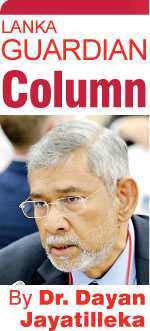
With the UNP failing to produce an elected leader of the country for 30 years, a breakaway from that party was long overdue. This situation has given birth to two ‘breakaways’, the older, nationalist, Sri Lanka Podujana Peramuna (SLPP) and the younger, populist, Samagi Jana Balavegaya (SJB).
The August 2020 election is shaping up primarily as a fascinating clash of these two newly-emergent forces.
JVP
The worst-case scenario of the hollowing out of both the SLFP and the UNP, thereby leaving a void which may have been filled by the military, spelling the end of democracy, didn’t come about because the SLPP substituted for the SLFP, while the SJB is filling in for the UNP. The JVP couldn’t have picked up the slack left by either party, let alone both.
The contention that the JVP is a viable alternative for the Opposition voter is not applicable to the UNP’s base vote, not least because UNP families were slaughtered by the JVP in the late 1980s. Had the Joint Opposition (JO) and later the SLPP (“Pohottuwa”) not been formed, the anti-Government SLFP voters would not have shifted en masse to the JVP either, because the SLFP voter would not have shifted other than to a political formation that bore a resemblance and had some overlap, some continuity, with the parent party, while being a reminder of that parent party in its glory days before it aged and de-legitimised itself in alliance with the UNP.
 |
| President Gotabaya Rajapaksa |
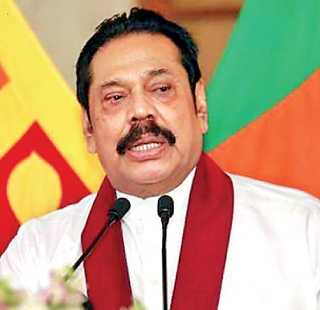 |
| Prime Minister Mahinda Rajapaksa |
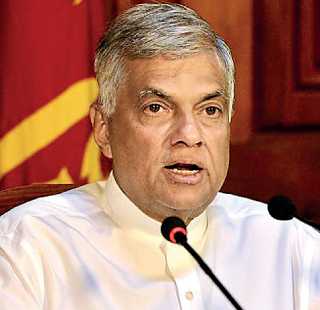 |
| Ranil Wickremesinghe |
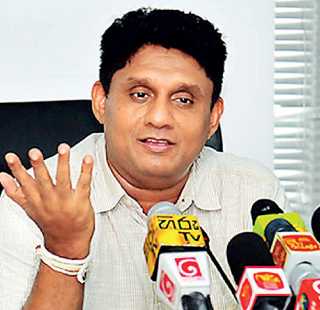 |
| Sajith Premadasa |
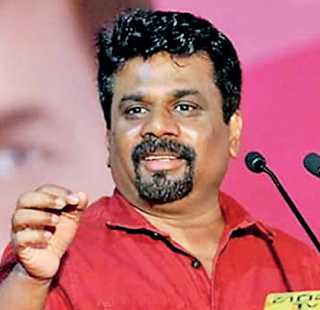 |
| Anura Kumara Dissanayake |
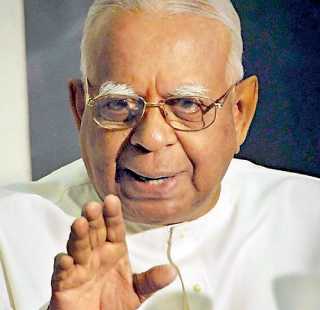 |
| R. Sampanthan |
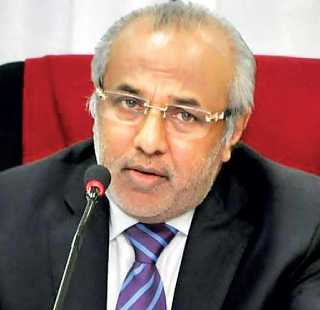 |
| Rauff Hakeem |
|
|
The SLPP’s real achievement was that it was able to scoop up most of the SLFP vote while stepping outside it and appealing to non-traditional SLFP voters, i.e. to new, protest voters.
The UNP voter will not shift to the JVP but would have either opted while holding his/her nose, for the old party and gone down to yet another defeat, or stayed at home and opted out. The SJB gives the UNP voter the same option that the SLPP gave the SLFP voter: a chance for a fresh start while still being a familiar choice; a comfort zone even while stepping outside the box.
Today, it is not the JVP but precisely the SJB that has shaped up as a national-democratic populist movement of a cross-class, truly ‘organic’ mass character.
UNP tragedy
The UNP’s crisis was not caused by Sajith Premadasa’s move to de-link. Young Premadasa made his move—at long last—and the SJB was born, precisely because the UNP’s crisis appeared terminal. Few wanted to go down with the Titanic.
While boosting the UNP vote to 42% from its dismal below 30% performance at the 2018 local authorities election, Premadasa Jr. was unable to do what his father did in 1988, firstly because his candidacy was criminally deferred and delayed by Mr. Wickremesinghe giving GR the advantage of several laps around the track, and secondly because he was not running as the UNP leader as was his father when the candidacy was conceded.
This upcoming Parliamentary Election marks the real test of Sajith and the SJB, because they have untethered and autonomised themselves from the old UNP Establishment.
The UNP was ailing and what it was ailing from was diagnosable and diagnosed at least a decade ago. Going beyond diagnosis, a clear prognosis was presented, with no less clear a prescription. It would have worked, but it was at first ignored and later, blocked. What we are witnessing now is the deferred, cumulative result.
In 2013, I ‘scanned’ the reality of the UNP:
“…The UNP is dying of multiple causes. It is losing votes; its own as well as those new votes it should have attracted as an Opposition party. It is losing parliamentarians, the latest and most visible being Dayasiri Jayasekara. It is losing activists and representatives through absurd disciplinary inquiries…It is losing numbers in parliament and at every level of the political system, through loss of votes and elected representatives…No one seems ready to accept the reality that there are two parties struggling under the tattered and perforated green tent…” (Dayan Jayatilleka, ‘The UNP’s implosive collapse and a dying democracy’, The Island, 7 October 2013)
I concluded the article by prescribing a course of action which has come to pass at least partially, seven years later:
“…Therefore, the UNP can be saved only by two procedures. Firstly, the party must be rebuilt under the leadership of a personality who can re-unite the party’s factions, provide a healing touch. I can only think of the benign father figure within the UNP, Karu Jayasuriya. Secondly the UNP must recharge its batteries, renovate, re-brand and re-launch with a candidate who can energise an electoral ‘ground game’. I can only think of Sajith Premadasa.” (http://island.lk/index.php?page_cat=article-details&page=article-details&code_title=89658)
Even a few years before that, indeed an entire decade ago, I had prescribed in The Sunday Leader the change that has now, finally, taken place. I had entitled it ‘The Sajith Solution’:
“…Does the UNP have a personality who can fit the bill? Someone who is educated enough to lead the country into an Asia that is led by an educated elite; has sufficient experience of the West to understand it and mend fences but trusted by Sri Lankans never to sell out the nation? Is there someone who is solidly Sinhala Buddhist but not narrowly chauvinist or communal minded and can therefore win the minorities without repelling the majority as Ranil does? Is there someone who is so knowledgeable in economics that he can plan and pilot our sustainable take-off, while simultaneously alleviating poverty and thereby pre-empting a social backlash? The answer is obvious and it is yes, there is. Sajith Premadasa, educated at a British public school and the LSE (specialising in economics), is certainly far better educated than Ranil Wickremesinghe or any of his supporters. He is almost certainly far more popular, both among the party members and voters and in the country.
…His father, Ranasinghe Premadasa was the epitome of the Nietzschean ‘will to power’, more accurately translated from the German as ‘the will to overcome’ — though it was never fully deployed and thereby failed in relation to the Tigers. Does Sajith have the requisite ‘will to overcome’? For the sake of Sri Lanka let us hope that he has, or will generate it rapidly enough.”
(http://www.thesundayleader.lk/2010/04/25/the-sajith-solution/comment-page-1/)
It took a decade from the time that was published, for consciousness, both individual and collective, to reach the point of emancipatory rupture.
Sajith’s SJB is reminiscent of the Citizens’ Front that Ranasinghe Premadasa led and built in 1972-1973, having failed to reform the massively defeated UNP from 1970. Resembling, yet a far larger, more established, mainstreamed version of the Citizens’ Front, it is more a democratic-populist political movement than a formal, orthodox political party.
 The real choices
The real choices
The planetary political field today may be said to contain a competition between projects of progress and modernity.
We have the Trump-Gotabaya Alt-Right model of retrograde modernity. It consists of majoritarian supremacism, unilateralist-authoritarianism, religious-cultural conservatism and economic nationalism. Modernity and progress through a regressive ideology and siege mentality verging on existential agoraphobia, is contradictory, divisive, dysfunctional, self-destructive and doomed.
We also have the Hillary-Ranil-Mangala-CBK model of neoliberal modernity, which generates social, national and cultural blowback of cyclonic scale, because of its socioeconomic inequity, deracinated globalism, effacement of the nation and the national, and privileging of the free market and individual lifestyle preferences, with nothing existentially overarching or foundational in the sense of rooted or moored collective belonging—with “no direction home” (Dylan).
Finally, and fortunately, we have a buffet of intermediate options, from the ‘left populism’ of Lopez Obrador (‘AMLO’) of Mexico through the social democracy (with ‘kindness’ as keyword) of Jacinda Ardern, the left-nationalism of the Sinn Fein and the Nepali Communists, the centrist-liberalism of Emmanuel Macron, and most portentously, the progressive liberal-democracy of Joe Biden. It is within this broad, elastic ‘third space’ that the Sajith Premadasa discourse and the SJB manifesto can be most appropriately accommodated. Sajith’s SJB manifesto is the closest we have to a platform for a social democratic developmentalism.
After August
The ironies of history are bitter: The Sri Lankan State that was freed of foreign military presence by President Premadasa and territorially re-unified by President Mahinda Rajapaksa may be centrifugally fragmented and susceptible to external intervention due to the monoethnic hyper-centralism of President Gotabaya Rajapaksa.
While it possible to build ‘Socialism in One Country’ through a humanist social system and a strong outreach of humanitarian internationalism (Cuba), even China will find it strategically untenable to sustain a Sinhala-Buddhist State with a Closed Economy on a small, heterogenous island in the Indian Ocean, on India’s doorstep.
The counterproductive policy of import restriction has already been accurately cautioned against by the outgoing Ambassador of Germany:
“…Sri Lanka’s current trade restrictions are “detrimental” to Sri Lanka as it increases prices for consumers; and the country’s exporters are impacted since most value-added products require imported items, German Ambassador Jorn Rohde said in an interview with the Business Times in Colombo… “Sri Lanka is the only country in the world to impose extended restrictions,” he said pointing out that just last month Vietnam had signed a Free Trade Agreement (FTA) with the EU… Trade is not a one-way street and the EU is the biggest trading partner of Sri Lanka,” Mr. Rohde said adding that “if you have a prolonged restriction on imports then it will at some stage be a point of discussion at the World Trade Organization (WTO).” (http://www.sundaytimes.lk/200719/business-times/germany-says-import-controls-policy-detrimental-409724.html)
The GR regime has two contradictory models which serve as an unlikely pair of psychological pillars: Alt-Right majoritarian supremacist Trumpism, and a rising China.
The first ideological model-cum-psychological pillar looks set to crumble on Nov 3 when the American people vote.
As for the second pillar, an economically isolationist Lankan regime over-dependent on China (through no fault of China’s), will find itself uncomfortably placed with a post-Trump, soft-power reloaded, renascent USA with reinvigorated partnerships and alliances including with India (our only, and giant neighbour), Japan, South Korea, Australia et al.
With its irrational adventurism, the Lankan regime may inadvertently entrap our friend China into overstretch and a quagmire, enabling an anti-China pincer to inflict a strategic defeat on Beijing on this Indian Ocean island.
Sri Lanka maybe the weakest thread in the so-called ‘String of Pearls’; the place where the string unravels or is cut.
 Reading Rauff Hakeem
Reading Rauff Hakeem
Rauff Hakeem has just written the best book (published by Vijitha Yapa) on politics by a Sri Lankan politician that I have read. It is on the existential situation of Sri Lanka’s Muslims, but is embedded in an objective, well-researched revaluation of Sri Lankan politics as a whole. Entitled ‘We Are A Part, Not Apart,’ with the strap ‘Demystifying Myths against the Muslims of Sri Lanka,’ it is exceedingly well written, ably argued, poignantly polemical, and far more literate than I have encountered in the writing of any contemporary Lankan Parliamentarian or political personality. Only an intellectual politician could have authored this.
This book could not be timelier. It contains a slice of contemporary history, the Islamophobia of the last five years, and the active practice of it by mainstream political parties and figures, including leaders of small ultranationalist parties now in government, their proxies, and sections of the mainstream (‘Fox News’ type) media.
It is shocking and contemptible that so moderate, reasonable and balanced a politician as Rauff Hakeem was accused by mainstream politicians and media of being complicit with terrorism.
TNA Manifesto
The TNA’s Parliamentary Election Manifesto unambiguously takes its stand for federalism, the classic platform on which Mr. Chelvanayakam founded the Federal Party. ‘Self-determination’ is invoked (which the Supreme Court has ruled is not separatist) but not harped upon.
The TNA’s stand on the 13th Amendment is problematic. While it cites President Mahinda Rajapaksa’s solemn commitment made to India among others to implement it fully, the TNA itself deflects the point by reiterating its standard criticism of the 13th Amendment, namely the powers of the Governor. Though the manifesto cannily cites Prime minister Modi’s invocation of ‘federalism’ in his address to the Lankan Parliament (2015)—and Mr. Modi may be tempted to achieve for the Tamils, including the 80 million Tamil citizens in Tamil Nadu, something beyond what the Congress did-- India cannot legitimately help secure for the TNA something that goes beyond what Delhi originally obtained for the Tamils and which President Rajapaksa promised to implement. The TNA will also fail to find a partner of significance in the new parliament, to support and anchor a liberalisation, still less a supersession/transcendence, of 13A.
On the accountability front, the TNA’s election manifesto reiterates its call for an independent international inquiry as well as a truth mechanism.
While the Sri Lankan Government has returned, quite naturally, to its 2012-2014 call in Geneva for a “domestically designed and driven process”, it has conspicuously undermined the credibility of such a call with the selective Presidential pardon for convicted child-killer Sunil Rathnayaka, the unfair, opaque treatment of Hejaaz Hisbullah, a young Supreme Court lawyer, and the threatened roll-back of the 19th Amendment with its independent commissions, especially the Election Commission.
The Tamil diaspora’s grotesque accusation that the Sri Lankan side (intentionally) caused anything between 40,000 to 120,000 civilian casualties—a tar-brush tactic aimed at damning the Sri Lankan state and its legitimate war—gets most Sri Lankans riled up. A fact-based focus upon specific, emblematic cases with credible evidence (key to the dramatic success of the George Floyd campaign), rather than wild, generic allegations would resonate universally including with fair-minded Sinhalese, and far better serve the cause of justice.
The TNA fails to recognise the clear and present danger that if the Government secures a two-thirds majority, it will unilaterally abolish or truncate the system of Proportional Representation (PR) which ensures the minorities fair representation, and revert to an overwhelmingly first-past-the post system which loads the dice in favour of the ethnoreligious majority (especially if electorates/districts are re-carved).
Reversal of the 13th and 19th amendments and abolition/reduction of Proportional Representation will entrench systemic Sinhala-Buddhist supremacy and structurally marginalise the minorities. The Christians community, including the Catholics, will not find themselves immune.
Corona killers
The highbrow British periodical Prospect has just put out its list of the world’s Top Fifty Thinkers, and two personalities have made the list because of the success of their approaches at COVID-19 suppression, one being New Zealand PM Jacinda Ardern (whose keyword was ‘kindness’) and other, a neighbour of ours, Ms. K.K. Shailaja, the Health Minister of Kerala, nicknamed “the corona-killer”.
No Sri Lankan made the list.
Despite Kerala’s globally lauded, outstanding success, we haven’t consulted our neighbour K.K. Shailaja on how best to tackle a problem that she is globally lauded for solving.